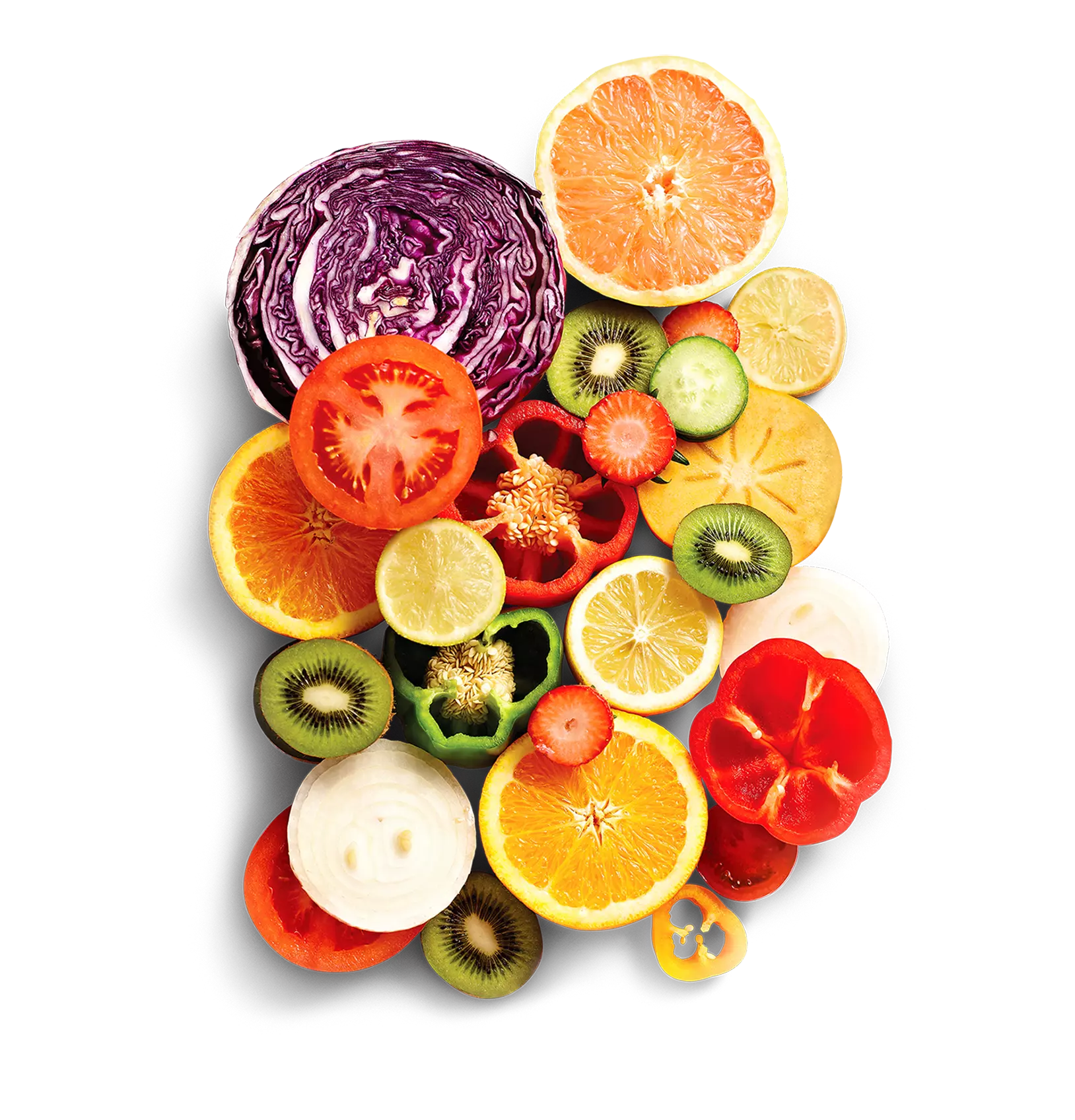Featured in this post
Must-Have Features in a Food Industry ERP
Must-Have Features in a Food Industry ERP

Today’s food and beverage businesses require advanced technological tools to move at the speed that the marketplace demands. In recent years, enterprise resource planning (ERP) systems have become the gold standard to unlock the agility and actionable insights that you need to compete.
Of course, it’s not so simple as grabbing any old ERP platform off the proverbial shelf and expecting results. As a food and beverage industry professional, you need to be on the hunt for a true food industry ERP—one that comes with functionalities suited to your very specific processes out of the box—so that you can avoid costly customisations and cumbersome workarounds that could delay your return on investment (ROI).
Let’s examine some of the most important features of food and beverage ERP solutions so that you’ve got all the relevant information as you consider the available options.
Real-Time Inventory and Stock Management
It may seem obvious, but knowing what you have on-hand and being able to rely on the fact that your figures are always up-to-date is a serious advantage in the food and beverage world. After all, running out of a critical ingredient at the wrong time can be a nightmare and put a real damper on your ability to achieve plan fulfilment and follow through with delivery commitments.
ERP systems designed for food and beverage manufacturers harness the power of integration and automation to ensure that your stock levels are accurately reflected in the interface. They also make finding what you’re looking for much easier, as they capture more information than just quantity—you can know where a specific lot is, when it was received, when it expires and more with an advanced solution like Aptean Food & Beverage ERP.
Another useful feature of inventory management software is automatic reordering of ingredients when stock falls below the threshold that you set. That way, your business will never be without the materials necessary to run your lines and fulfil orders.
Shelf Life and Expiration Management
Shelf life and expiration management goes hand-in-hand with inventory control. Your food ERP should help you implement a first-expiry, first-out (FEFO) method for picking quantities of stock for use in production, as that practice is proven to reduce waste and help you get the most out of what you purchase.
Also, knowing that spoiled ingredients represent a food safety risk, your system should employ alerts when certain lots are reaching the end of their window of viability so that they can either be used quickly—if time allows—or simply removed from inventory so they don’t end up in your finished goods. That should lead to better customer experiences, as they’ll be able to enjoy totally fresh and fit-to-eat food.
Recipe and Formula Management
The recipes behind your products are vital to your success, so you need sophisticated recipe management tools to ensure precision of ingredient levels, timing, mixing procedures, cooking processes and more. In certain sectors of the food and beverage industry, formulas can become quite complex, but a real food industry ERP will be able to handle the nuances and granular details of even your most challenging configurations.
Automatic unit conversion is a huge time-saver when it comes to adjusting and tracking amounts, making it a must-have feature in a food manufacturing ERP solution. You should also look for the ability to integrate with smart sensors, as you need to closely monitor characteristics like temperature, consistency and fill level to ensure your products meet your own standards for excellence.
Quality Control
Closely related to recipe management is quality control, which we all know is vital for customer satisfaction and brand reputation. Any food industry ERP software worth considering should come packed with features that help streamline the quality assurance process, ensuring that everything that rolls of your production lines will delight customers.
By allowing you to set your own quality triggers, a solid ERP solution can help you monitor for and catch deviations from internal standards to make sure that no deficient items slip through the cracks and make their way to end consumers. You can also create any number of inspection statuses that will help keep all members of your staff informed on what's already been confirmed and what still needs to be checked, keeping product quality consistent and customers satisfied.
Traceability and Recall Readiness
Complete traceability forward and back along your supply chain is a must in today’s food and beverage manufacturing landscape. Not only is it important for consumer confidence in the transparency of your products, but it’s also critical for food safety.
No business wants to face an emergency recall situation, but with the right food industry ERP software on your side, what could otherwise be catastrophic is much more manageable. You need a solution that captures all of the vital data associated with your ingredient lots so that you can identify:
where your problematic materials came from
what products they’ve been used in at your facilities
what other lines they may have come into contact with
where the affected products are headed
Purpose-built platforms like Aptean’s food manufacturing ERP also make completing the necessary withdrawal paperwork and communications easier, as a workflow can be established beforehand and certain steps can be automated. It can also automatically schedule your own audits, making sure they are conducted routinely and properly—simplifying another preventative measure.
Allergen Management
On the subject of traceability, keep in mind that extra care will be necessary if your business uses any ingredients with allergy concerns, especially those that appear on the lists of problematic materials published by the U.S. Food and Drug Administration and UK government. As long as any of those foods are in your inventory, they must be kept segregated from other ingredients, and the surfaces with which they come into contact must be tracked.
Food industry-specific ERP systems have functionalities dedicated to these critically important matters, helping you ensure that you protect sensitive end consumers and avoid negative publicity. And considering undeclared allergens are consistently the leading cause of product withdrawals, sound allergen management can also help save your business money, reducing the chances that you’ll have to pull products from shelves at your expense.
Regulatory Compliance
Because food safety is such a critical matter, regulations and standards for food and beverage manufacturers are becoming ever more stringent. In the U.S., the new Food Traceability Rule recently added to the existing provisions of the Food Safety Modernization Act, and the European Union recently established a new definition of the “food safety culture” that all food and beverage businesses are required to follow.
As such, it’s vital that you’re aware of what regulations are applicable to the sectors your business operates in, as well as how to best ensure that you follow all necessary procedures. Food industry ERP solutions make this so much easier, as the best among them—including Aptean Food & Beverage ERP—have measures built in to ensure compliance and automate your checks and audits.
Whether your priority is conforming to HACCP, SQF, BRCGS, ISO, FSSC or cGMP standards or simply satisfying the requirements of the government or regulatory body that your organisation reports to, an industry-specific ERP should have the tools to effectively manage and meet all compliance requirements. That gives you watertight confidence and peace of mind, without laborious workarounds, time-consuming manual processes or costly customisations.
Demand Planning
Precisely aligning supply and demand is critical for all food and beverage organisations—after all, ensuring your product is available when your customer wants it is vital if you want to avoid them switching to a competitor. Thankfully, food ERP solutions have dedicated features to help you master forecasting and production planning.
Using historical sales figures and current trend patterns, the forecasting features of advanced food and beverage ERP systems create demand projections for the future with reliable precision. With this information, you’re able to make smarter purchasing and production scheduling decisions—ensuring you always have enough product to fulfil demand while minimising waste.
The best platforms combine these forecasting capabilities with dedicated production planning features that let you compare current inventory with pending orders to precisely inform procurement. Not only does this allow you to align supply and demand more accurately, but it helps balance staffing and equipment needs and minimise slack time. So you can satisfy customer demands while streamlining internal processes—a true win-win.
Production Scheduling
Speaking of maximising your resources, with both raw material and labour costs increasing, optimising production scheduling is always top of mind for food and beverage organisations. That’s why it’s important to choose a food ERP system with dedicated production scheduling capabilities.
These features allow you to arrange, control and optimize your workloads in order to minimise slack times and costs. With clear insight into work centre and machine centre capacities, you’re able to optimise the allocation of resources and even automate the scheduling of production orders based on pre-determined attributes.
Furthermore, you can leverage additional flexibility to truly optimise resource use in your facilities by adding downtime for maintenance, including overtime to increase capacity or splitting production orders when needed. All of this functionality gives your production planners the tools they need to balance supply and demand, while boosting resource utilisation and increasing the efficiency of your production line.
Warehouse Management
Choosing a purpose-built food ERP with integrated warehouse management system (WMS) functionalities helps you tackle your biggest food warehouse management challenges using one single system.
Integration with handheld barcode scanners means data can be transmitted directly into your ERP system, reducing errors associated with manual data entry and allowing for immediate access to crucial data for your teams. This streamlined process is complemented by a WMS dashboard that helps you and your staff stay on top of operations in real time.
Built-in lot numbering and identification schemes, like license plating and serial shipping container codes, provide full visibility of where your goods are on their journey through your facilities. By choosing a system with these kind of in-built warehouse management capabilities, you’re able to improve visibility and better maintain inventory levels while streamlining processes within your facilities.
Catch Weight Management
Primarily a concern in the meat, seafood and poultry industries—where it’s frequently referred to as "catch weight"—variable weight of products can be difficult to track without the right technology. Food industry ERP are thankfully equipped with the functionalities necessary to effectively monitor and account for this factor.
By using data-rich labels and connected devices like barcode and QR scanners, the granular information of many different product weights can be collected and maintained in your unified database. The data remains tied to the product as it moves along the supply chain, so it’s effectively accounted for when it comes to quotes and margins as well.
This feature in particular shows just how big of a difference it makes to have a purposefully designed ERP system. With a generic offering, your options would be limited, and you might have to resort to manual record-keeping—but a thoughtfully engineered solution specific to the food and beverage industry heads off those headaches before they occur, allowing your company to keep pushing forward and making progress.
Bonus Feature: Trade Management and Advanced Pricing
It’s news to no one that the cost of doing business has increased significantly. And with this trend of higher operating costs looking set to continue, food and beverage organisations must unlock savings and maximise profitability wherever possible.
Choosing Aptean Food & Beverage ERP provides you with a jumpstart on the competition in this respect with two modules designed specifically to help you boost profitability. Our specialised trade management features empower you to establish separate plans for each agreement—whether it’s to accommodate promotions, offer different rates as orders scale or apply mark-ups and discounts per item or customer. This flexibility allows you to make deals that unlock additional revenue.
Our solution’s advanced pricing functionality also lets you build pricing schemes—like hierarchal pricing, percentage/unit discounting and price calculations using shipment date or requested/promised dates—that span different customer groups or apply to individual clients. When paired with the typical cost-saving benefits of a standard food ERP, these additional features of Aptean’s solution help boost your bottom line and protect your profit.
Bonus Feature: Business Intelligence (BI)
To truly get the most benefit from your food ERP, you’ll also want to look for a solution that has integrated business intelligence capabilities. While battling the razor-thin margins of the food and beverage industry, having easy access to actionable insights and extensive analytics tools give you an additional competitive advantage and helps create a cycle of continuous improvement within your organisation.
With Aptean Business Intelligence, you have access to 500-plus key performance indicators (KPIs) that use terminology and measurements specific to the food and beverage industry, as well as machine learning capabilities that improve forecasting and simulation features. These allow you to understand the likely impact of business decisions before you make them and thereby facilitate the creation of a smart strategy.
Not only do these features help you report on key business metrics and analyse data more quickly, but they also provide highly actionable information to help you increase sales, optimise inventory, streamline processes and so much more.
Selecting a Superior Solution
When it comes to narrowing down your options in an ERP selection process, keep in mind these vital features and note the key differentiators between the various offerings and vendors. Not all are created the same, and considering you only want to spend time and money in an involved implementation once, it’s important to make the right choice.
Make sure you identify your key processes—those that are most central in your success—and compare how well-suited each of your candidates is given your operations. Also, when you’re evaluating food and beverage ERP solutions, ensure that the system you select can scale with your business, as you’re making a long-term investment with this deployment.
You’ll also want to consider what additional functionality your business may require in the future. For example, it is worth understanding at this stage if your potential vendors offer other platforms you’ll need on your digital transformation journey, including product lifecycle management (PLM) software or a transport management system (TMS). Purchasing these systems from one vendor can help ensure smooth integrations and hassle-free implementations.
In addition, it’s also wise to consider the deployment options available for your food ERP. Aptean offers flexible cloud deployments on the Software as a Service (SaaS) model for greater scalability, enhanced cybersecurity, stronger data protection and broader accessibility.
If you’re interested in hearing more about Aptean's specialised food ERP and how it can fulfil your company’s needs and improve your processes, contact us today or schedule a personalised demo.
Food Manufacturing Metrics That Matter
Food manufacturers rely on data to make decisions regarding their organization’s operations. Data provides visibility into process efficiency—however, not all data should be weighed equally. How do you know which metrics to prioritize for decision making?



 Jack Payne | Vice President, Product Management & Solutions Consulting
Jack Payne | Vice President, Product Management & Solutions Consulting